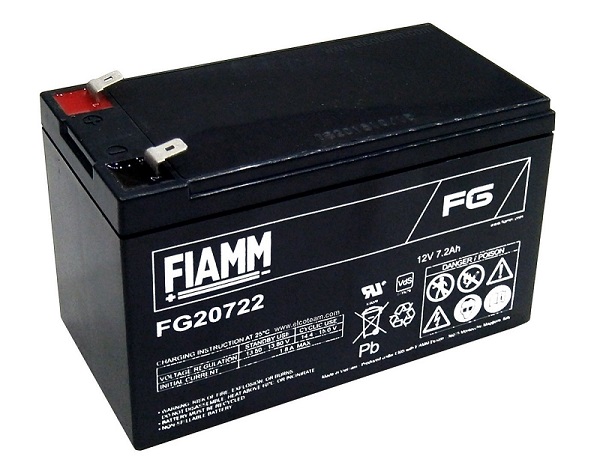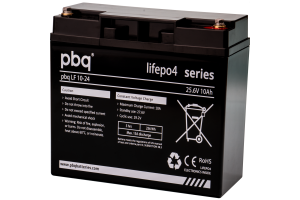Lead-acid and lithium-iron-phosphate batteries are often used in industrial applications. Lead-acid batteries are the traditional option, while lithium-iron-phosphate batteries are increasingly used as a 'drop-in replacement'. However, both variants have their own advantages and disadvantages that are worth considering.
Lead-acid batteries are widely used because of their reliability, simple charging procedures, low self-discharge, and relatively low costs. They are ideal for applications where a large amount of power is needed for a short time, such as when starting combustion engines.
Advantages of lead-acid batteries:
- Proven technology: lead-acid batteries have been in use for over a century, and their behaviour and lifespan are well understood.
- Cost-effective: lead-acid batteries are generally cheaper than other types of batteries, including lithium-iron-phosphate, in terms of both initial costs and total lifecycle costs.
- Availability: because they are so widespread, lead-acid batteries are available all over the world.
- Recycling: lead-acid batteries are highly recyclable, which helps to limit environmental impacts.
Lead-acid battery from FIAMM
Lithium-iron-phosphate
On the other hand, lithium-iron-phosphate (LiFePO4) technology has several advantages over lead acid, including higher energy density, longer lifespan, and lower weight. In addition, they are better resistant to damage from deep discharge. Advantages of LiFePO4 batteries:
- Longer lifespan: LiFePO4 batteries can undergo up to 2000-5000 cycles, while lead-acid batteries are often limited to about 500-1000 cycles.
- Higher energy density: they can store more energy in a smaller, lighter package. This makes them ideal for portable electronics and electric vehicles.
- Better deep discharge tolerance: Unlike lead-acid batteries, LiFePO4 batteries can safely be discharged to 80-90% without significantly shortening their lifespan.
- Faster charging times: LiFePO4 batteries can usually be charged faster than lead-acid batteries.
- Safety: LiFePO4 batteries have a very stable chemistry and are less prone to thermal runaway (which can lead to ignition and explosion) and are generally safer than other lithium-ion chemistries.
So the choice between these two types of batteries depends on the specific needs of the application, including factors such as cost, weight, lifespan, charging time, and safety.
LiFePO4 accu PBQ
Are you looking for a suitable battery for an industrial application, but don’t know whether a lead-acid or lithium-iron-phosphate battery is more suitable for you? Please contact us by filling out the form. We would be happy to advise you!

